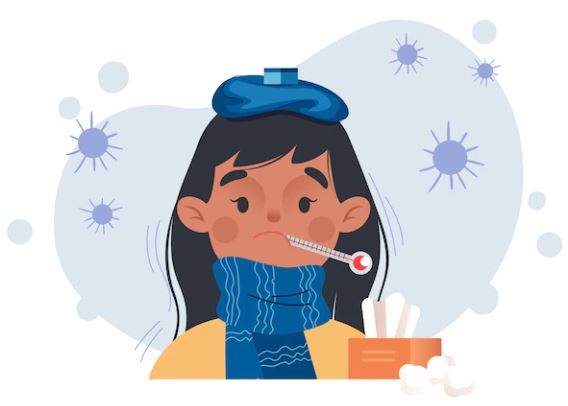How does the disease affect the immune system?
How does the disease affect the immune system?
When the immune system attacks and destroys body structures, it is referred to as an autoimmune disease. There are 80-100 different autoimmune diseases that can cause a variety of symptoms. Women are more likely to be affected by autoimmune diseases. Unfortunately, autoimmune diseases cannot be cured causally, but the progression of the disease and the relief of symptoms can be slowed down by timely treatment.
What are autoimmune diseases?
The immune system performs the function of protecting your body from extraneous and dangerous influences. Not everything is foreign and dangerous, the immune system must also withstand the body's structures, which is why the balance of inflammatory reactions and regulatory mechanisms is necessary for the correct function of the immune system. If this balance is disturbed, the immune system can perceive its body as "alien" and initiate an inflammatory reaction against it to render "dangerous" substances harmless. Inflammation destroys tissues and causes discomfort.
Since any part of the body can be affected, there are many different diseases, and they are all grouped under the term "autoimmune diseases". Depending on the affected organ systems, the severity of the disease, and the general state of Health, life expectancy in autoimmune diseases varies significantly.
Also, allergic reactions are caused by a malfunction of the immune system. Non-hazardous substances are classified as dangerous, and an excessive immune response leads to the appearance of symptoms. However, autoimmune diseases are not allergic, since they are not a response to foreign substances, the so-called allergens, but the immune system reacts directly to the components of the body.
Autoimmune diseases can be organ-specific, focusing on a specific organ, or systemic throughout the body. Since many autoimmune diseases are very rare, this list of autoimmune diseases is not exhaustive, but only provides some of the most common examples:
Alopecia areata: ring hair loss.
Inflammatory bowel disease: inflammation of the intestine can be persistent or inflamed. The two most common representatives are Crohn's disease and ulcerative colitis.
- Type I diabetes mellitus destroys insulin-producing cells in the pancreas.
- Hashimoto's thyroiditis: autoimmune hypothyroidism.
- Lupus erythematosus (butterfly itch): it can affect any organ.
- Morbus Basedow (Graves ' disease): autoimmune-related hyperthyroidism.
- Morbus Bechterew: a rheumatic disease that primarily affects the lower back and pelvis.
- Multiple sclerosis: inflammation of the nervous system.
- Psoriasis: inflammatory that mainly affects the skin.
- Rheumatoid arthritis: inflammatory disease of the joints.
- Vitiligo: the destruction of melanin-producing cells.
Symptoms of autoimmune diseases
Symptoms of autoimmune diseases can be very different. Since each autoimmune disease is directed against certain tissues and organs by specific antibodies, the symptoms are limited to these areas. Several autoimmune diseases can occur at the same time.
Causes of autoimmune diseases
Unfortunately, the exact causes of the imbalance of the immune system and the following autoimmune diseases are not yet known. What is certain is that the likelihood of autoimmune diseases is hereditary and can be inherited. There are also environmental factors that can act as triggers. These include:
- Smoking
- Infection with viruses, bacteria, or parasites
- Feeding
- Exposure to pollutants
- Stress
Several factors are often necessary before an autoimmune disease develops.
The state of pregnancy is special for the immune system. She must tolerate the fetus. This change can serve as a trigger for the development of an autoimmune disease. The severity of the symptoms of an existing autoimmune disease usually changes during pregnancy. Autoimmune diseases can also occur in the context of cancer.
Diagnosis:
Just as the symptoms of different autoimmune diseases are different, different tests are needed to diagnose each autoimmune disease. In addition, the severity of the disease must be assessed to find the appropriate treatment option.
Treatment of autoimmune diseases
Since the immune system is necessary for survival, it cannot be eliminated. Thus, even autoimmune diseases cannot be cured and cured causally. However, depending on the stage of the disease and the affected area, there are many ways to alleviate the symptoms and stop the progression of the disease as much as possible. Such NSAIDs (non-steroidal anti-inflammatory drugs) reduce inflammatory reactions that lead to tissue destruction
As immunosuppressants . These drugs regulate the entire immune system. This reduces the immune response of your tissues, but the risk of infection also increases, since the response to pathogens is also reduced. In some autoimmune diseases specifically synthesized immunoglobulins, which precisely intervene in the inflammatory mechanism of autoimmune diseases and do not weaken the rest of the immune system.
Here's how Kry can help
Since the range of autoimmune diseases is very wide, it can be difficult to recognize an autoimmune disease on your own. Complaints sometimes seem nonspecific and irrelevant. With Kry, you have the opportunity to talk directly to a doctor, who can go into more detail about the symptoms in a detailed discussion and assess the likelihood of whether you have an autoimmune disease. If there is a possibility or if physical examinations are necessary, you can also get a referral to a resident


.JPG)
.JPG)
.JPG)
.JPG)
.JPG)
.JPG)



